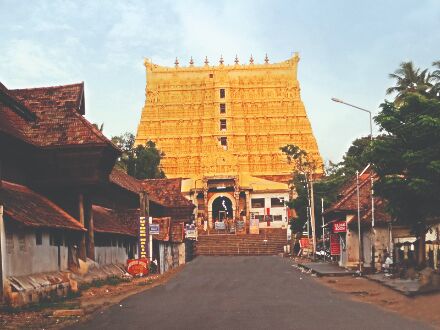SC denies Shree Padmanabha Swamy Temple Trust's plea to exempt it from audit of 25 years

New Delhi: The Supreme Court on Wednesday declined a plea filed by Shree Padmanabha Swamy Temple Trust, run by the Travancore royal family, seeking to exempt it from the audit of 25 years as ordered by the top court last year.
A bench headed by Justice U U Lalit said the audit should be completed as early as possible, preferably within three months.
"It is clear that the audit contemplated was not intended to be confined to the temple only but with respect to the trust. This direction has to be seen in light of the reports of the amicus curiae in the case as recorded in order dated 2015," said the bench, also comprising Justices S Ravindra Bhat and Bela M Trivedi.
The apex court however refrained from passing any order on the plea of the Trust to exempt it from the administrative supervision of the Administrative Committee constituted by it saying that it requires factual analysis.
The Administrative Committee of the Shree Padmanabhaswamy Temple in Kerala had on September 17 told the apex court that it is in great financial stress and the offerings are not sufficient to meet the expenses, while seeking an audit of the temple-related trust run by the Travancore royal family.
All temples in Kerala are closed and while this temple's monthly expenses are Rs 1.25 crore, "we are able to hardly get 60-70 lakh rupees. Therefore, we have sought certain directions," senior advocate R Basant, appearing for the committee, had said.
The temple is in great financial stress and "we are not able to function", Basant had said, alleging that the Trust is trying to avoid its obligation by not making their record available for audit.
The Trust has 2.87 crore in cash and 1.95 crore in assets as per the 2013 auditors' report and that is why the entire thing has to be gone into to find out how much money it has, he had said.
The Trust is constituted as per court's order and it must contribute to the temple, Basant had told the bench.
Senior advocate Arvind Datar, appearing for the Trust, had argued that it is a public Trust made by the Royal family and has no role in administration. The Trust was just mentioned by the Amicus Curiae in the case, not as part of the petition, he said.
"The Trust was constituted only to oversee the pujas and rituals of the Temple involving the family, with no role in the administration. It came into picture before the Supreme Court only after the amicus curiae demanded that the accounts of the trust also should be audited," he had said, adding that it need not be audited as it is separate from the temple.
Datar had submitted that the Trust is a public trust started by the ruler and its objects are there inside the temple.



